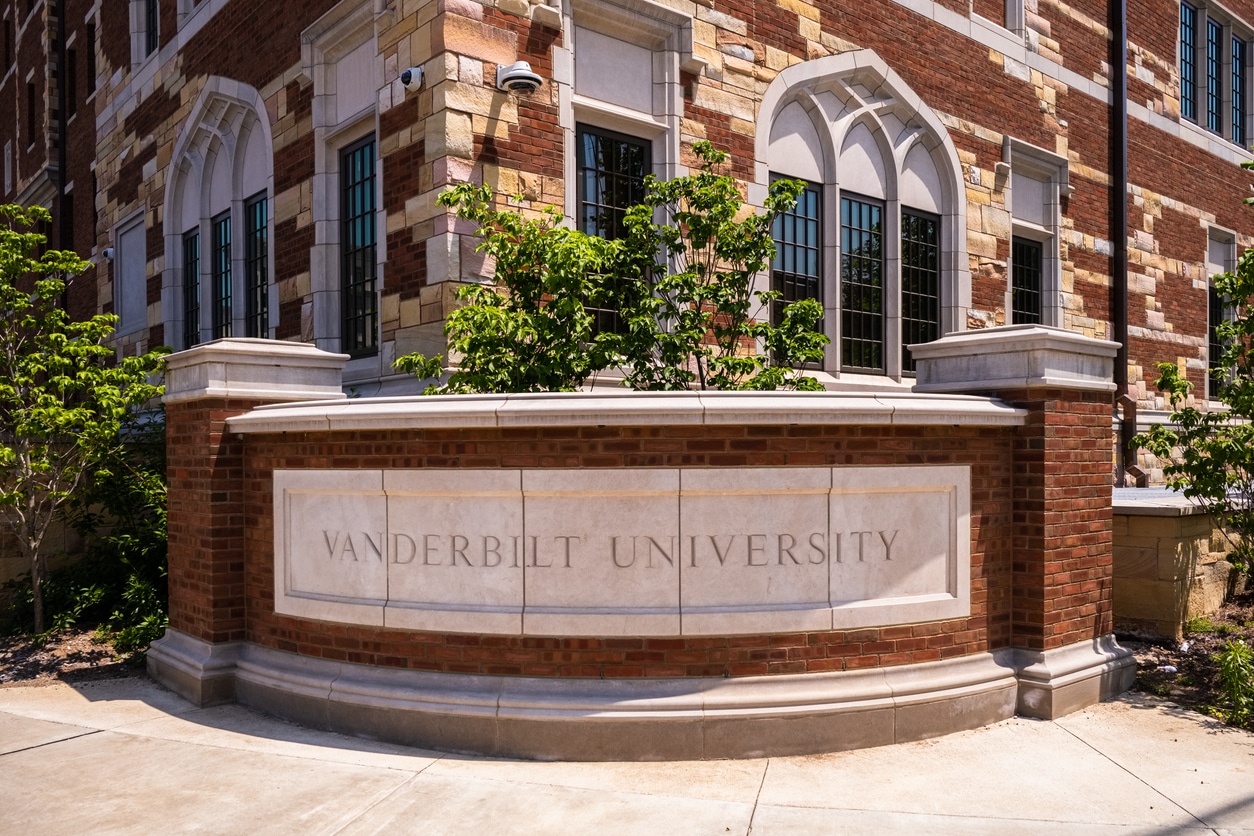Editor’s note: Nashville Scene reporter Eli Motycka was arrested on the campus of Vanderbilt University on March 26, 2024. After reviewing the arrest, the Davidson County District Attorney’s office announced, “This office will not prosecute a reporter for peacefully doing his or her job.” Motycka wrote a column for the Scene sharing his perspective on the arrest. It is reprinted here with the permission of the Nashville Scene.
March 26, I was outside Kirkland Hall at Vanderbilt University when I was handcuffed, arrested and held at the Davidson County jail. I was on campus that day to cover student protests in and around Kirkland Hall related to the school blocking a vote on a resolution supporting a Boycott, Divestment and Sanctions movement through the Vanderbilt Student Government. It is a story I have covered multiple times over the past month.
Vanderbilt has since repeatedly changed the details of my arrest and provided false and incomplete descriptions of the incident in at least five public or campus-wide statements reviewed by the Scene.
I write to clarify three major elements of Tuesday’s events. First, no officer ever asked (or ordered) me to leave Vanderbilt’s campus that day or at any other time until after my arrest. Vanderbilt repeatedly justifies my arrest with this false premise. I have lived, worked and gone to school around Vanderbilt for 25 years. In the past year, I have been issued official press credentials by the university and been invited to campus by members of the faculty and the student body. The first time I heard anything about trespassing was while I was being handcuffed.
Second, I behaved professionally and courteously before, during and after my arrest. University implications that I ignored officers’ warnings or attempted to break into Kirkland Hall particularly offend me and impeach my credibility as a journalist.
Third, Vanderbilt did not drop or otherwise admit fault for my criminal trespass charge — a charge that was ultimately not prosecuted. Nor has the university apologized. Instead, the school has issued a series of statements in which their depiction of my arrest has changed several times. This includes incorrectly substituting the word “detained” for “arrested” in multiple instances.
Vanderbilt can make amends with the following three actions.
First, release any and all private camera footage of me from that day. This is an easy way to rebuild the school’s trust with me, my publication and the community. It dispels any implication that I was in any way forcing entry into Kirkland Hall. It costs nothing and is in line with the school’s ostensible commitment to “openness and accountability.”
Second, clarify that I am welcome on campus in both personal and professional capacities and do not risk re-arrest. This includes explicitly dropping the restrictions on journalists conveyed to me by Damon Maida on Wednesday, March 27. Tuesday’s arrest came with no warning, and after my arrest, my arresting officer implied that it could happen again if I were to go back to campus.
“If you come to Vanderbilt property or the hospital without a legitimate reason, you are subject to arrest just by being on the property,” the officer told me while I was handcuffed in the back of the squad car. “Due to the actions you did today, I am letting you know, you are not welcome back on the property. Doing a news report is not a legitimate reason because it is private property.”
Third, I request a written apology acknowledging that my arrest for criminal trespassing was improperly carried out and perpetrated with no warning, co-signed by my arresting officer and Capt. Tony Meadows, the non-uniformed Vanderbilt police captain who gave the order to arrest me. This letter will also acknowledge that no officer has ever asked me to leave Vanderbilt’s campus — not that day or on any previous day.
My arrest was not only personally embarrassing and physically uncomfortable, it was professionally inconvenient. It kept me from a story I had been waiting to report. The experience was emotionally distressing for me, my friends and my loved ones, particularly my mom. I handled myself courteously and professionally before, during and after my arrest. Any additional evidence Vanderbilt shares will only prove that point. The university has begun to backtrack from its position, seen in the latest unsigned public statement issued Thursday evening, in which they say that my arrest is now under “review.”
Vanderbilt has arrested four of its own students and placed 16 more on interim suspension for their roles in the sit-in as of Friday afternoon.
The Free Speech Center newsletter offers a digest of First Amendment- and news media-related news every other week. Subscribe for free here: https://bit.ly/3kG9uiJ

